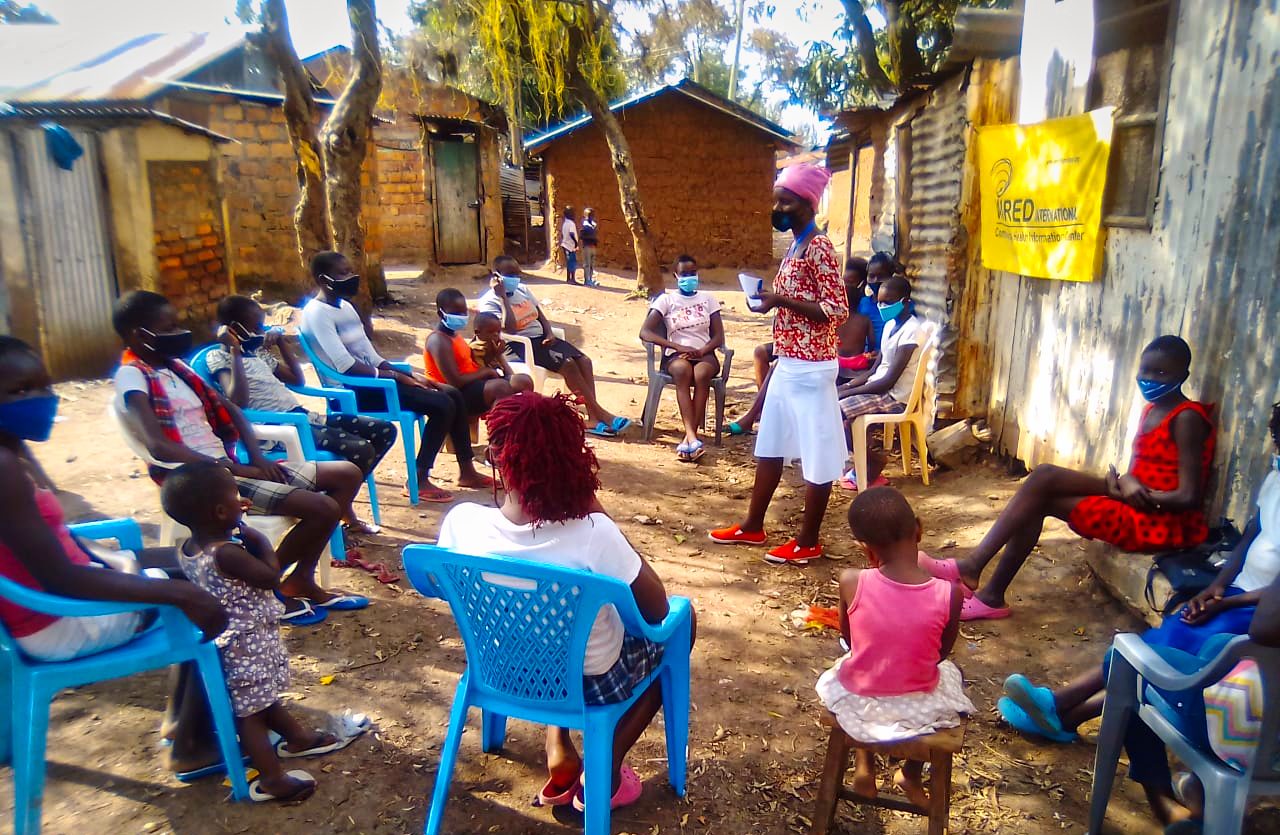WiRED Previews Programs in 2021
Planning Our Most Ambitious Year Yet
By: WiRED Director Gary Selnow, Ph.D.; Edited by Jessie Crowdy
 At the start of each year since 1999, we have released the plans that guide WiRED International’s efforts for the next 12 months. Last year our objective was to launch a major new community health worker (CHW) training program. After COVID-19 struck, we had to make a number of mid-course corrections to stay on track. By the end of 2020, though, we met our goals to test the CHW training program in four countries. That success was due to the flexibility of a small and nimble organization, good working relationships with partners abroad and, admittedly, a bit of luck.
At the start of each year since 1999, we have released the plans that guide WiRED International’s efforts for the next 12 months. Last year our objective was to launch a major new community health worker (CHW) training program. After COVID-19 struck, we had to make a number of mid-course corrections to stay on track. By the end of 2020, though, we met our goals to test the CHW training program in four countries. That success was due to the flexibility of a small and nimble organization, good working relationships with partners abroad and, admittedly, a bit of luck.
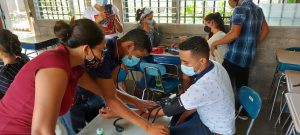 Now, we’re at the opening bell for 2021, and we’re less sure about what to expect this year than we have been at the start of any year since we’ve been in operation. So much depends on COVID, on vaccinations, on mutating variants, on travel restrictions and on other developments out of our control.
Now, we’re at the opening bell for 2021, and we’re less sure about what to expect this year than we have been at the start of any year since we’ve been in operation. So much depends on COVID, on vaccinations, on mutating variants, on travel restrictions and on other developments out of our control.
Despite the uncertainties that may lie ahead, we’re starting with an ambitious plan; let me tell you where we see WiRED’s programs headed in 2021. Our incredible volunteers are lining up for the work, and here’s where we plan to go:
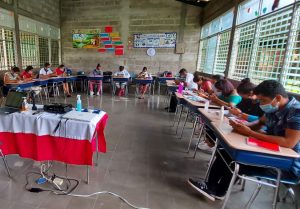 Expand CHW training. We’re planning to hold additional training classes in Kenya, Peru and Nicaragua. Exactly how we do that and how many people we can train hinges on COVID. Success of the CHW education program in 2020 demonstrated the importance of this effort to increase the knowledge and skills of local people who are able to help underserved populations stay healthy.
Expand CHW training. We’re planning to hold additional training classes in Kenya, Peru and Nicaragua. Exactly how we do that and how many people we can train hinges on COVID. Success of the CHW education program in 2020 demonstrated the importance of this effort to increase the knowledge and skills of local people who are able to help underserved populations stay healthy.
- Establish a special study within our CHW training program that teaches graduates how to administer COVID vaccinations. Each student will receive the full 140 hours of basic CHW training, followed by an additional 10 hours of instruction on handling vaccines, screening patients, administering COVID vaccinations and monitoring patients after the shot. These CHWs will also receive an additional five hours of clinical practice.
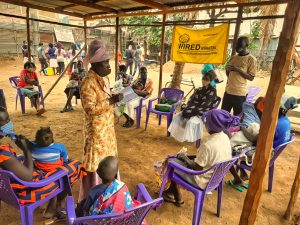 Why include vaccinations in the CHW program? When COVID vaccines reach underserved regions later this year or beyond, we know there will not be enough doctors and nurses to administer the shots to tens of thousands of communities. Unless we vaccinate significant portions of the global population, COVID will linger for years. The proven success of WiRED’s accredited CHW training program positions us to equip CHWs with the skills appropriate to administer vaccinations. Contingent on securing the funding needed, we plan to start training this vaccination corps soon, so by the time the vaccines arrive, we will have trained an adequate number of people, ready to begin vaccinating the population.
Why include vaccinations in the CHW program? When COVID vaccines reach underserved regions later this year or beyond, we know there will not be enough doctors and nurses to administer the shots to tens of thousands of communities. Unless we vaccinate significant portions of the global population, COVID will linger for years. The proven success of WiRED’s accredited CHW training program positions us to equip CHWs with the skills appropriate to administer vaccinations. Contingent on securing the funding needed, we plan to start training this vaccination corps soon, so by the time the vaccines arrive, we will have trained an adequate number of people, ready to begin vaccinating the population.
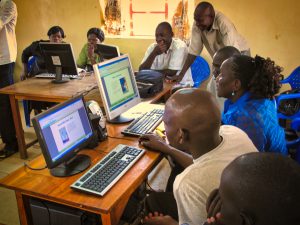 Explore setting up training facilities in two overseas locations (locations not yet determined). WiRED would offer CHW training at these facilities to people from surrounding countries. This will be a major undertaking, as we’ll have to resolve a number of logistics issues and other obstacles, but the approach is the most effective and efficient way to train large numbers of people to serve as CHWs. We’re convinced that CHWs are the answer to many of the ongoing health needs caused by COVID and other factors.
Explore setting up training facilities in two overseas locations (locations not yet determined). WiRED would offer CHW training at these facilities to people from surrounding countries. This will be a major undertaking, as we’ll have to resolve a number of logistics issues and other obstacles, but the approach is the most effective and efficient way to train large numbers of people to serve as CHWs. We’re convinced that CHWs are the answer to many of the ongoing health needs caused by COVID and other factors.
- Ramp up a continuing medical education program. Governments everywhere require medical professionals to take refresher courses in order to retain their credentials; the World Health Organization expects it for CHWs as well. WiRED has built an innovative, global program that not only delivers a large library of training courses but also allows CHWs to keep track of their progress through an app.
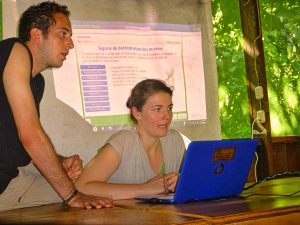 At present CHWs can opt for more than 400 study modules. They can select topics they find personally interesting or to meet the health information needs they face in their communities. They can study these modules online, or download them to a smart phone or tablet and study anywhere.
At present CHWs can opt for more than 400 study modules. They can select topics they find personally interesting or to meet the health information needs they face in their communities. They can study these modules online, or download them to a smart phone or tablet and study anywhere.
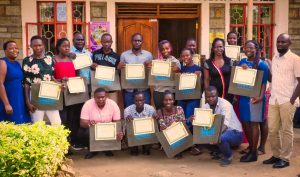 In addition to individual topics, WiRED offers CHWs groups of modules that focus on specific topics, for instance mother and child health, infectious diseases, diabetes, HIV/AIDS. Our plans for 2021 include adding two new collections, described next.
In addition to individual topics, WiRED offers CHWs groups of modules that focus on specific topics, for instance mother and child health, infectious diseases, diabetes, HIV/AIDS. Our plans for 2021 include adding two new collections, described next.
- Offer a First Aid Collection. WiRED medical writers are preparing a large collection of first aid training tools, packaged into a single module for portability and easy access. CHWs can study the collection and take the modules with them on phones and tablets for easy reference in the field.
- Incorporate One Health. The term One Health refers to the intersection of human, animal and environmental health. With climate change becoming increasingly evident in rising temperatures of air and water, more violent storms as well as widespread wildfires, we are witnessing related health impacts. For instance, we see the increase of vectorborne diseases and food and water diseases, and more widespread starvation because of crop failures and sanitation issues related to rising sea levels.
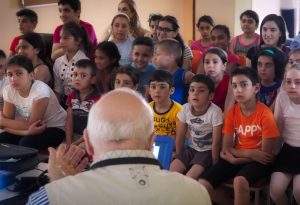 WiRED will be working with global health students at Claremont Graduate University, California, in the coming months to develop a collection of training modules explaining to CHWs the relationship between health and the environment and preparing them to be on watch for signs that climate change is impacting their communities.
WiRED will be working with global health students at Claremont Graduate University, California, in the coming months to develop a collection of training modules explaining to CHWs the relationship between health and the environment and preparing them to be on watch for signs that climate change is impacting their communities.
 Plans for much of our work relate to COVID, but we are reaching beyond the virus to continue preparing CHWs and populations in underserved regions for a range of health issues we will face after COVID is eradicated. WiRED’s volunteers and board members look forward to the challenges this work will present.
Plans for much of our work relate to COVID, but we are reaching beyond the virus to continue preparing CHWs and populations in underserved regions for a range of health issues we will face after COVID is eradicated. WiRED’s volunteers and board members look forward to the challenges this work will present.

